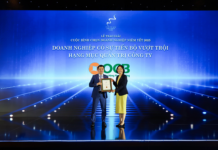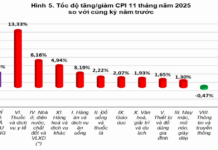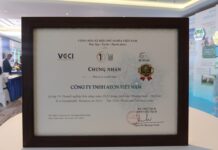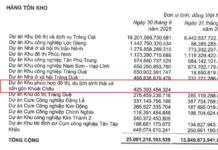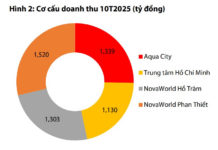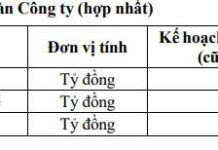The first-instance trial of a case involving Cross-Vietnam Oil Trading, Transport, and Tourism Company Limited (Cross-Vietnam Oil) concluded on November 29. The defendant, Mai Thi Hong Hanh, the company’s former director and chairwoman, was sentenced to 30 years in prison for “Violation of regulations on the management and use of state assets, causing loss and waste” and “Bribery.”
Insignificant Recovery
According to the court’s ruling, defendant Mai Thi Hong Hanh took advantage of her position as the head of Cross-Vietnam Oil to appropriate a staggering 1.244 trillion VND (approximately 52.3 million USD) in environmental protection taxes collected from gasoline and oil sales. In addition to this, Hanh also committed violations regarding the establishment and use of the Gasoline and Oil Price Stabilization Fund, causing a loss of more than 219 billion VND (approximately 9.2 million USD). The total damage inflicted by these crimes amounts to over 1.4 trillion VND (approximately 58.5 million USD) for the state.
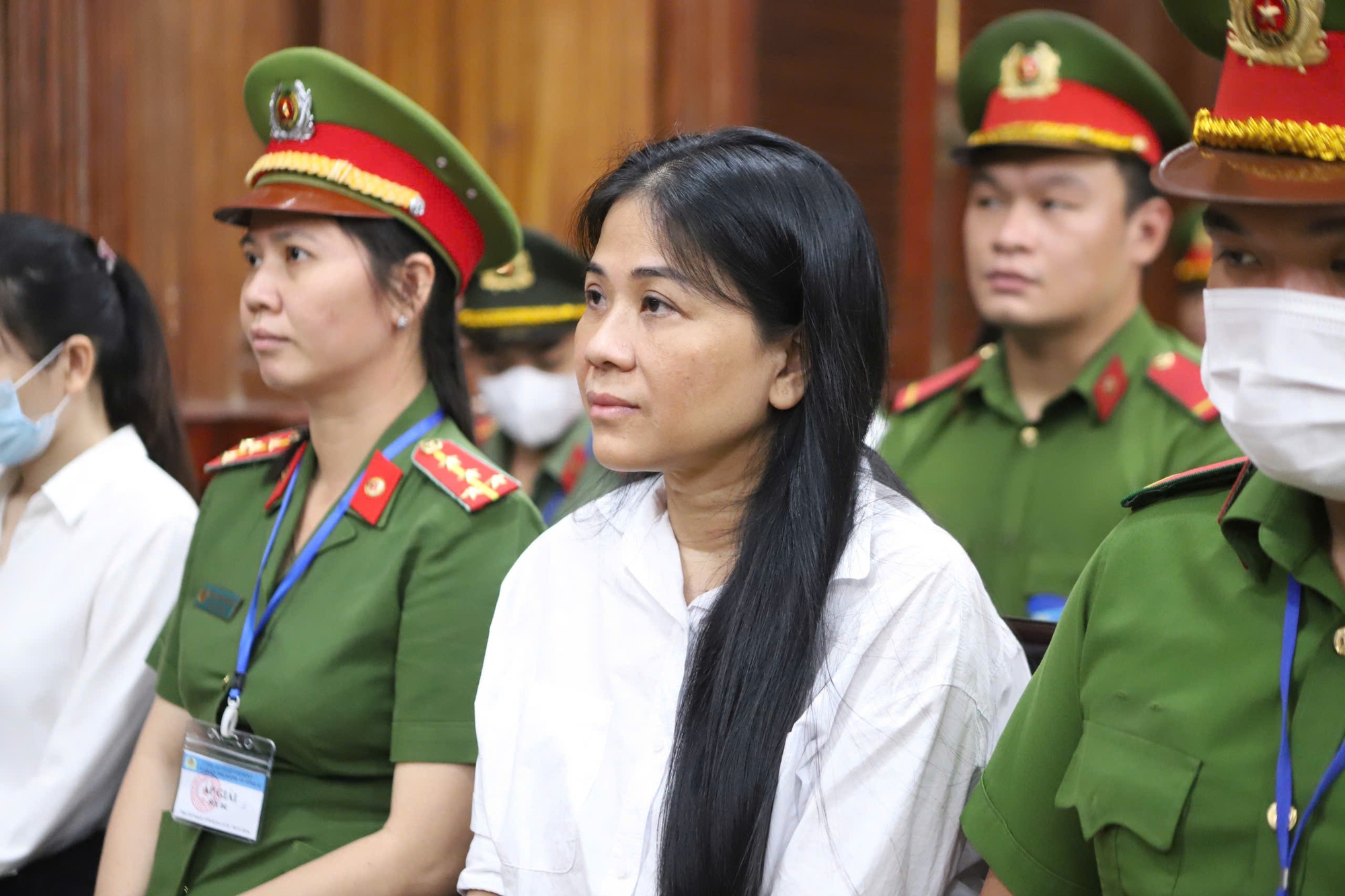
Defendant Mai Thi Hong Hanh in court
Despite the significant financial loss caused by her actions, Hanh’s ability to provide compensation is very limited. According to the first-instance verdict of the Ho Chi Minh City People’s Court, up to the time of the sentence, apart from the seized assets, the defendant had only compensated an additional 100 million VND (approximately 4,200 USD). The council considered this amount insignificant compared to the losses caused by her actions. At the time of her arrest, the authorities had frozen 17 of Hanh’s personal accounts at eight banks and 19 accounts of Cross-Vietnam Oil at five banks, but the total amount retrieved from these accounts was just over 4 billion VND (approximately 168,000 USD) and 244 USD.
Hanh admitted in court that the company still owned 3-4 oil tanker trucks, each worth between 2 and 7 billion VND (approximately 84,000 to 294,000 USD). However, the total value of these assets is only between 6 and 28 billion VND (approximately 252,000 to 1.17 million USD), still far from enough to make up for the loss of over 1.4 trillion VND that she caused.
During the trial, the defendant Hanh stated that several individuals had borrowed money from her, but this has not been verified. These individuals were absent from the court proceedings. Therefore, the court requested the Security Investigation Agency to continue investigating these individuals and clarify their involvement, if any, in the missing funds related to the case. If sufficient evidence is found, these individuals will be handled in accordance with the law.
Given Hanh’s current financial situation, the likelihood of full restitution is very low. Following the recommendation of the Ho Chi Minh City People’s Court, the authorities will continue to monitor and verify the assets and individuals involved to ensure a rigorous and fair handling of the case.
Relationship with Nguyen Thi Nhu Phuong
In her final statement before the council retired to deliberate, Mai Thi Hong Hanh, the “Cross-Vietnam Oil matriarch,” surprised everyone by taking responsibility for the actions of Nguyen Thi Nhu Phuong, the former deputy director of Cross-Vietnam Oil. Hanh asserted that Phuong was merely a figurehead, holding a high position but having no actual power, and that she followed Hanh’s instructions blindly.
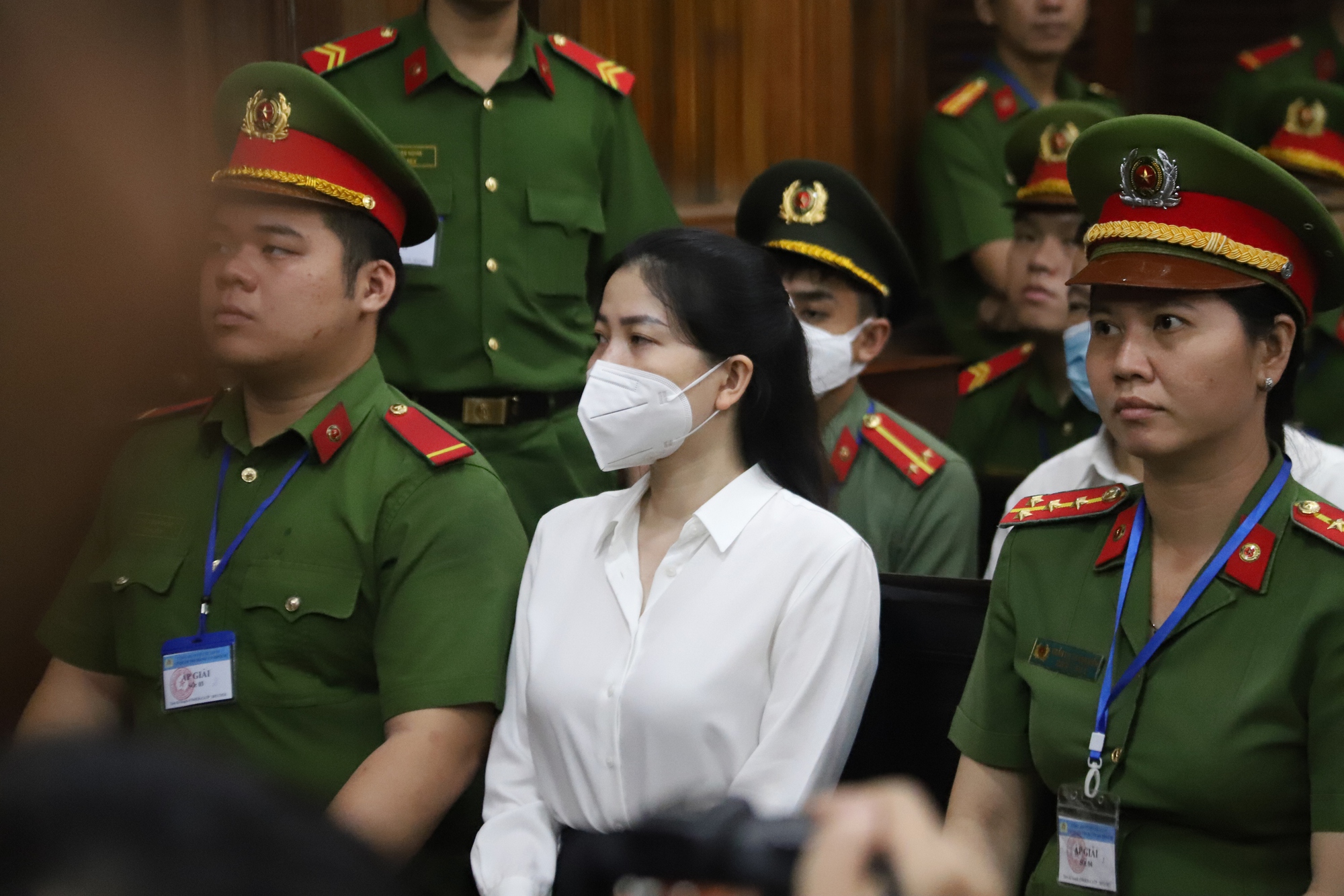
Defendant Nguyen Thi Nhu Phuong in court
The council, in its verdict, acknowledged the dependent relationship between Phuong and Hanh. Specifically, Phuong is Hanh’s cousin. This family connection, as determined by the council, was a factor in Phuong’s subservience to Hanh during their time working together at the company. Phuong was merely an employee, carrying out Hanh’s directives without any personal gain. Hence, Hanh took responsibility for Phuong’s actions to protect her cousin.
The council also emphasized that Phuong lacked expertise in finance and taxation, which limited her role as an accomplice. Therefore, the court considered this as a mitigating factor in determining her sentence, aiming for an educational and deterrent effect.
As a result, Nguyen Thi Nhu Phuong was sentenced to six years in prison for “Violation of regulations on the management and use of state assets, causing loss and waste.”
Important Recommendations
In addition to establishing the causes and conditions of the crimes committed by the defendants, the Ho Chi Minh City People’s Court also made several important recommendations to prevent similar violations in the future.
Specifically, regarding the Gasoline and Oil Price Stabilization Fund, there should be enhanced inspection and supervision of its establishment and utilization. It is recommended to mandate wholesale gasoline and oil traders to publicly disclose the fund balance and related documents periodically to ensure transparency. Concurrently, there should be amendments to the regulations on gasoline and oil trading, clearly defining the responsibilities of each management agency and assigning a single agency to oversee the fund or transferring it to a state agency for direct management. If any violations are discovered, the case should be immediately transferred to the investigative agency for criminal handling.
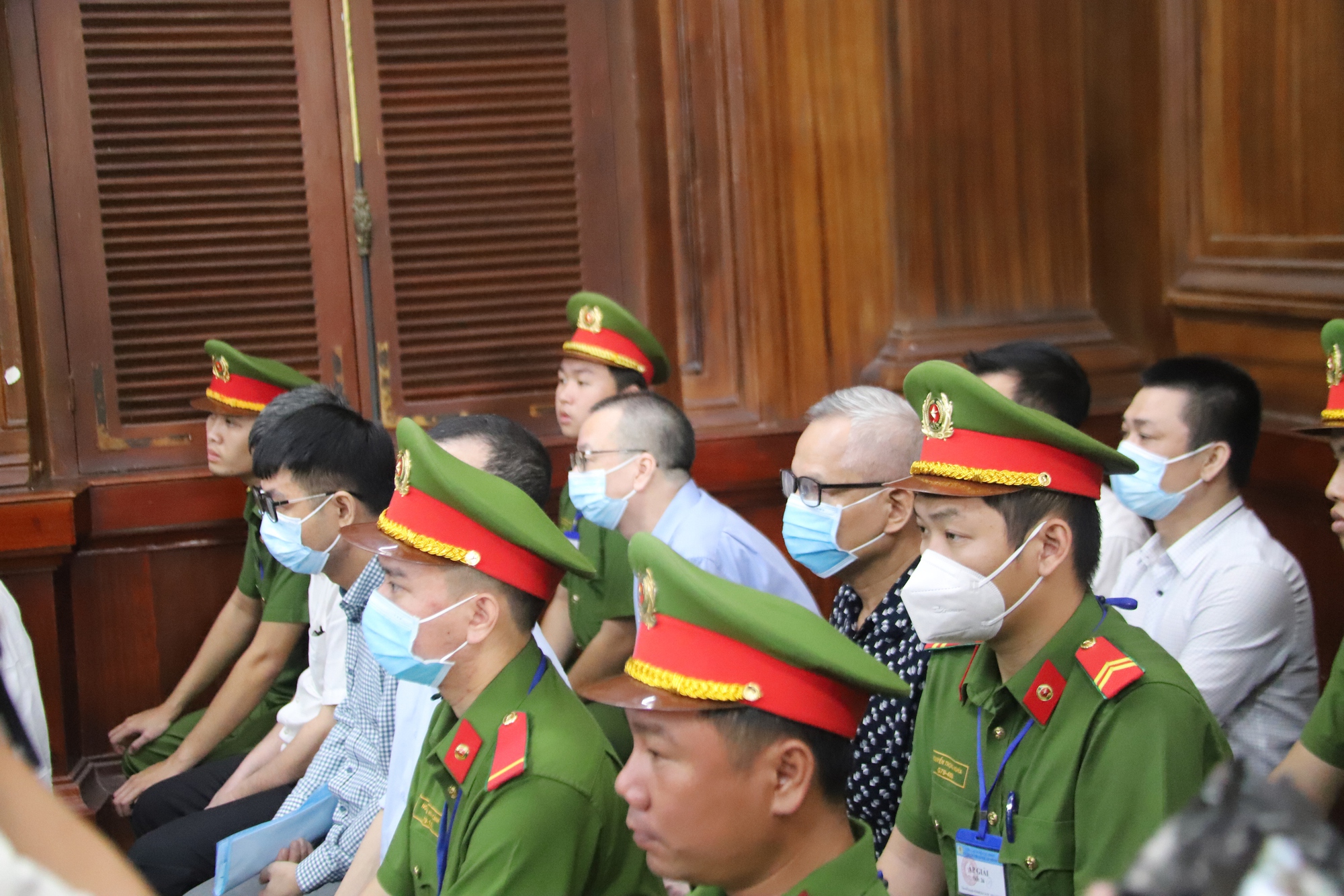
The defendants in the case
Concerning the collection of environmental protection taxes, the law should stipulate a specific timeframe for businesses to remit the collected taxes to the state budget and establish criminal liability for the legal representative if this obligation is not fulfilled. The tax authorities should strengthen inspections, supervision, and strict handling of violations, holding accountable the heads of tax agencies and enterprises in case of infractions.
Regarding the licensing of wholesale gasoline and oil traders, there should be clear regulations on the responsibilities and stringent sanctions for the licensing agency, including license revocation if the enterprise fails to maintain the required conditions. Additionally, supplementary penalties such as temporary business prohibition or fines should be applied to violating enterprises.
The Attorney Reveals Heartwarming Details about the “Iron Lady” of Xuyên Việt Oil
The Nguyễn Thị Như Phương family has just paid 20 million VND (Vietnamese Dong) as compensation for the damages caused in the case. Of this amount, 15 million VND was sent by the accused to her father for medical treatment.






